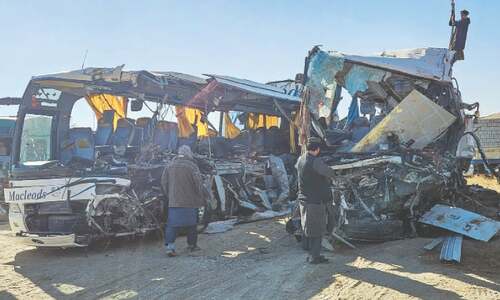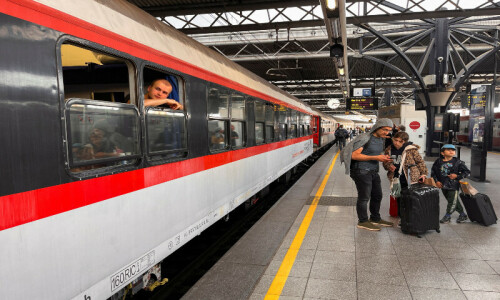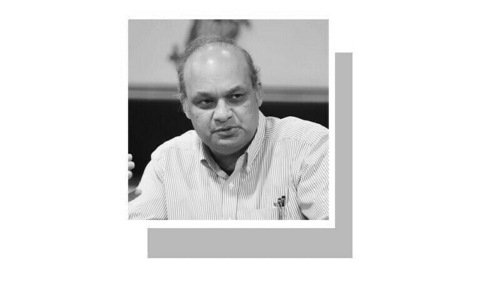TEHRAN: His speeches cause outrage in the West and critics at home say his economic policies are failing, but President Mahmoud Ahmadinejad still rallies Iran’s poor with his common touch and promises of state handouts.
Since his surprise election win in 2005, Ahmadinejad has rarely missed a chance to berate the West for trying to halt Iran’s nuclear progress — three times in as many years taking his message to the United Nations in New York.
Monday’s speech at New York’s University of Columbia may have prompted laughter of disbelief when Ahmadinejad, 50, said Iran had no homosexuals but his readiness to push Iran’s atomic cause on American soil wins plaudits from backers at home.
“I thank the president, who by using logical methods, defended the Iranian nation’s right in the heart of global arrogance,” MP Ali Abbaspour Tehrani told ISNA news agency news, using a term for America often employed by Iranian officials.
Ahmadinejad brushes aside Western charges Iran is seeking atomic bombs, saying it has no desire or need for such weapons. He says Iran is no threat to Israel, while predicting its destruction.
However, while Ahmadinejad is a vocal opponent of US policies, ultimate responsibility for shaping Iran’s nuclear policy lies with Supreme Leader Ayatollah Ali Khamenei.
Yet his support in Iran comes less from a readiness to take on the US superpower with verbal assaults and more from populist pledges to share out Iran’s oil and gas wealth more fairly, especially in regions that felt neglected by the state.
“None of the other presidents bothered to visit our deprived province. But Ahmadinejad did. He is one of us. He cares for his people,” Mohammad Razeghi,
a 67-year-old former civil servant, told Reuters in Mehran, a town in the poor west of Iran during an official trip to see if presidential pledges were being kept.
Ahmadinejad works the crowds at provincial rallies, drawing cheers with promises of new local services. Afterwards, sacks quickly fill with personal letters with requests. To show he is no out-of-touch politician, he says his butcher gives him tips about everyday economic problems.
GAUGING POPULARITY
But his critics say handouts may backfire. While he doles out cash from coffers brimming from wind-fall oil earnings, the spending surge has sent prices rising 17 per cent a year.
“These days inflation is very important because the president promised people to bring oil money to their dinner tables, but these days the Iranians are witnessing the consequences of inflation on their dinner tables,” said Tehran University Professor Hamidreza Jalaiepour.
An early warning came in December, when Ahmadinejad’s list of candidates in the local council elections fared badly. They face another test in the March parliamentary election. Even in the provinces, some grumble about broken promises.
But gauging political popularity is difficult in Iran, where there are no reliable opinion polls. Critics say even election results are skewed because an official body that vets candidates often excludes liberal hopefuls before the race.
Ahmadinejad has not said if he will run again in 2009 but few doubt he will. If he does, analysts say the oil revenue windfall will provide a handy campaign war chest for the race.
There is also no sign Iran’s establishment would oppose such a step.
Khamenei, the ultimate authority in Iran, has gently chided the cabinet on inflation among other issues but has, nevertheless, called Ahmadinejad’s government “the most popular in the last 100 years”.
Two years after his election in June 2005, a conservative daily hailed Ahmadinejad for taking Iran back to the values of 1979 Islamic revolution — one of his campaign pledges. Although criticism of the president in the press has become louder too.
Analysts say the president has broken with a tradition in Iranian politics which since the revolution, tended to involve a consensual approach. They say Ahmadinejad favours appointments from a small circle of allies, many of them ex-Guardsmen, a move that helps tighten his grip on power.
Some critics fear the growing might of the military in politics and say Ahmadinejad’s government is quashing dissent by steps such as closing newspapers which have been most critical.—Reuters












































Dear visitor, the comments section is undergoing an overhaul and will return soon.